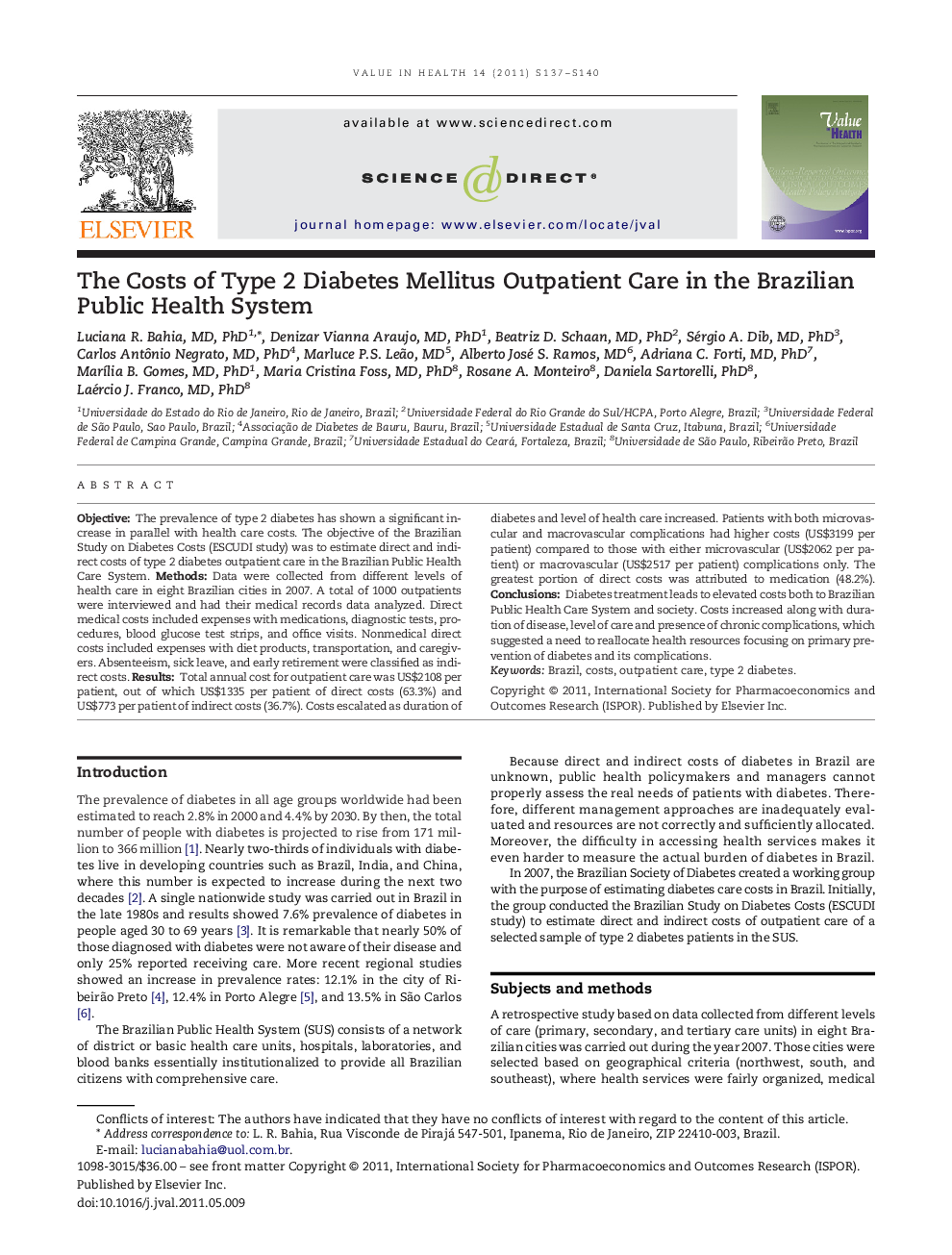| Article ID | Journal | Published Year | Pages | File Type |
|---|---|---|---|---|
| 988642 | Value in Health | 2011 | 4 Pages |
ObjectiveThe prevalence of type 2 diabetes has shown a significant increase in parallel with health care costs. The objective of the Brazilian Study on Diabetes Costs (ESCUDI study) was to estimate direct and indirect costs of type 2 diabetes outpatient care in the Brazilian Public Health Care System.MethodsData were collected from different levels of health care in eight Brazilian cities in 2007. A total of 1000 outpatients were interviewed and had their medical records data analyzed. Direct medical costs included expenses with medications, diagnostic tests, procedures, blood glucose test strips, and office visits. Nonmedical direct costs included expenses with diet products, transportation, and caregivers. Absenteeism, sick leave, and early retirement were classified as indirect costs.ResultsTotal annual cost for outpatient care was US$2108 per patient, out of which US$1335 per patient of direct costs (63.3%) and US$773 per patient of indirect costs (36.7%). Costs escalated as duration of diabetes and level of health care increased. Patients with both microvascular and macrovascular complications had higher costs (US$3199 per patient) compared to those with either microvascular (US$2062 per patient) or macrovascular (US$2517 per patient) complications only. The greatest portion of direct costs was attributed to medication (48.2%).ConclusionsDiabetes treatment leads to elevated costs both to Brazilian Public Health Care System and society. Costs increased along with duration of disease, level of care and presence of chronic complications, which suggested a need to reallocate health resources focusing on primary prevention of diabetes and its complications.
